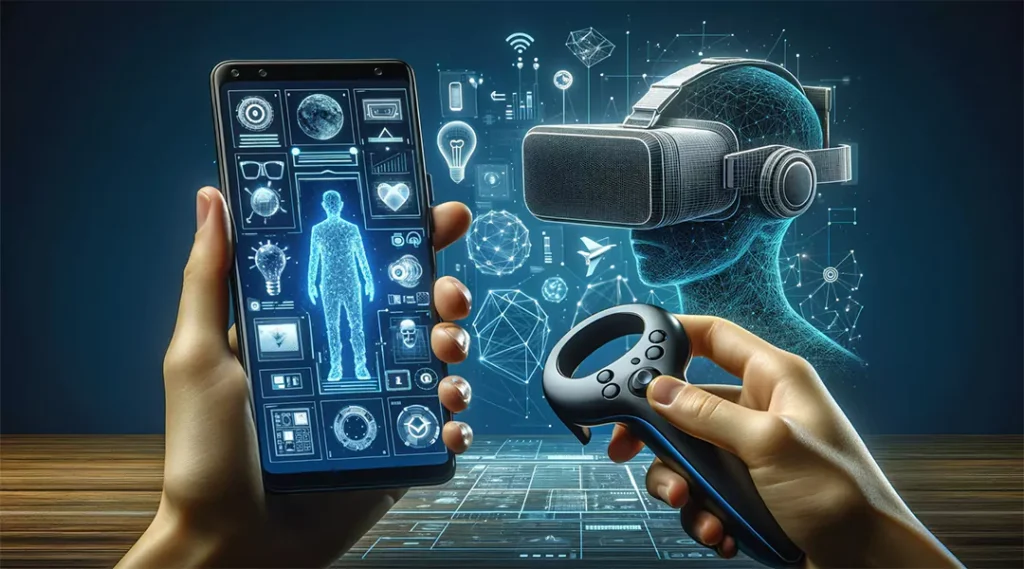1. Overview of current technological landscape
The current technological landscape is a dynamic and ever-evolving ecosystem that is reshaping industries and redefining human interactions. Key trends such as artificial intelligence (AI), the Internet of Things (IoT), and blockchain are driving innovation across various sectors. AI, in particular, has seen significant advancements with machine learning algorithms enabling predictive analytics, personalized recommendations, and autonomous systems.
2. Artificial Intelligence: Advancements and applications
Artificial Intelligence (AI) has made significant advancements in recent years, transforming the way we live and work. Beyond just voice assistants and chatbots, AI is being applied across various industries such as healthcare, finance, and transportation. In the medical field, AI is revolutionizing diagnostics by analyzing complex data to identify patterns and predict outcomes with higher accuracy.
Moreover, AI is increasingly being used in autonomous vehicles to enhance safety and efficiency on the roads. Advancements in machine learning algorithms have enabled these vehicles to perceive their surroundings, make real-time decisions, and navigate through traffic seamlessly. This intersection of technology and transportation holds great promise for a future where accidents are minimized, traffic congestion is reduced, and overall mobility is enhanced for all.
3. Internet of Things: Connecting devices for efficiency

The Internet of Things (IoT) offers a promising vision of interconnected devices that work in harmony to enhance efficiency and convenience in our daily lives. From smart homes that adjust temperatures based on occupancy to industrial sensors that optimize manufacturing processes, the potential impact of IoT is vast. By connecting devices and enabling them to communicate seamlessly, we can achieve a level of automation and data-driven decision-making that was once unimaginable.
4. Blockchain technology: Transforming industries with transparency
Blockchain technology has emerged as a disruptive force in various industries, primarily due to its ability to provide transparency and security in transactions. The decentralized nature of blockchain allows for tamper-proof and unchangeable records of data, making it ideal for industries such as finance, supply chain management, and healthcare. By ensuring transparency in every step of a transaction or process, blockchain is set to revolutionize how businesses operate.
In the financial sector, blockchain technology is already being utilized for faster and more secure cross-border payments. This has significantly reduced the need for intermediaries and minimized the risk of fraud or errors in transactions. Additionally, blockchain’s transparency feature enables customers to track their funds accurately from sender to receiver without any ambiguity. This level of transparency not only builds trust but also streamlines processes that were previously bogged down by inefficiencies.
5. Virtual and Augmented Reality: Immersive experiences on the rise

Virtual and augmented reality technologies are revolutionizing the way we interact with digital content, offering immersive experiences that blur the lines between the physical and virtual worlds. With VR headsets becoming more accessible and AR applications integrating seamlessly into everyday devices, these technologies are on the brink of widespread adoption across various industries. From enhancing gaming experiences to transforming remote work setups, the potential for VR and AR to shape our future interactions is limitless.
6. Quantum Computing: Revolutionizing data processing capabilities
Quantum computing is poised to revolutionize data processing capabilities by harnessing the principles of quantum mechanics. Unlike classical computers that rely on bits, quantum computers use qubits, which can exist in multiple states simultaneously. This unique property allows quantum computers to perform complex calculations at an exponential speed compared to traditional systems. Furthermore, quantum computing has the potential to solve problems that are currently impossible for classical computers due to its ability to process vast amounts of data in parallel.
The implications of this technological advancement are far-reaching, with potential applications in fields such as cryptography, drug discovery, and weather forecasting. Companies like IBM, Google, and Microsoft are investing heavily in quantum computing research and development to stay ahead in this competitive landscape. As we witness the evolution of quantum technology, it becomes increasingly clear that it will shape the future of data processing and open up a new realm of possibilities for innovation and discovery.

